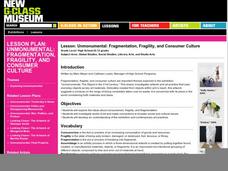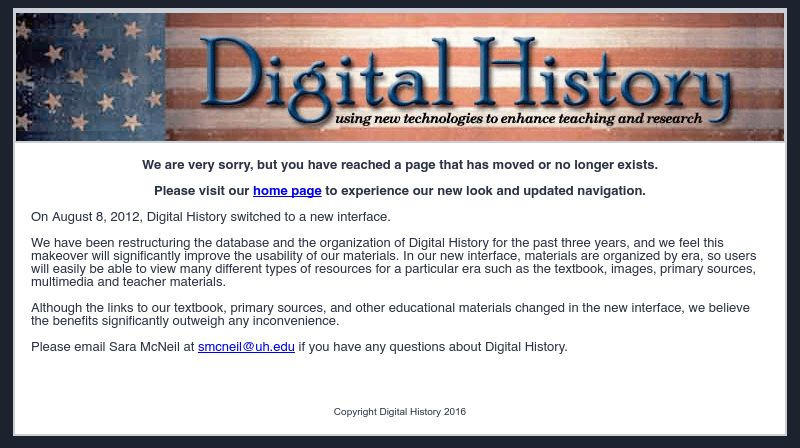Curated OER
Lesson: Unmonumental: Fragmentation, Fragility, and Consumer Culture
Looking at art is the first step to analyzing it. And, if you can analyze art, you can analyze anything. Kids examine several pop art pieces that represent consumerism in modern culture. They discuss multiple facets of each piece and...
Duke University
Duke University: Ad* Access
Images and database information for more than 7,000 ads printed in U.S. and Canadian newspapers and magazines between 1911 and 1955. Five main subject areas: Radio, Television, Transportation, Beauty and Hygiene, and World War II.
Ohio State University
Ehistory: Clash of Cultures in the 1910s and 1920s
Although this introduction to a more extensive site is not lengthy, it is filled with information about all the cultural tensions evident in the early 20th century. Of interest is a chart comparing the "Old" Culture with the "New" Culture.
Duke University
Duke University: Emergence of Advertising in America: 1850 1920
This timeline includes selected events in business technology, media, marketing, and advertising for 1850-1920.
Digital History
Digital History: Consumer Economy and Mass Entertainment
This article traces the rise of consumerism; from the car to installment credit buying, and the rise of chain stores such as Woolworths.
Other
Story of Stuff Project: The Story of Stuff
Activist Annie Leonard narrates this anticonsumerism video that traces the links between what we consume as finished goods and what is consumed in the production of those goods. The hidden costs of consumption-costs attributable to...
Council for Economic Education
Econ Ed Link: We Are Consumers and Producers
This lesson plan is geared toward beginning economics concepts. "For this lesson you are going to learn more about how you and others are consumers and producers."








